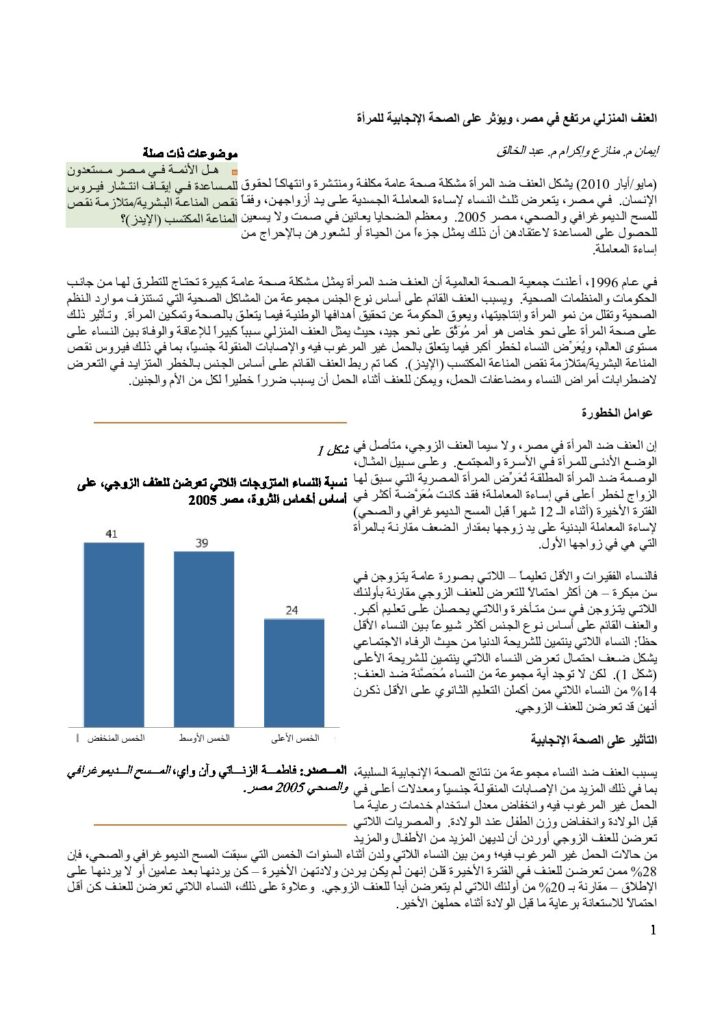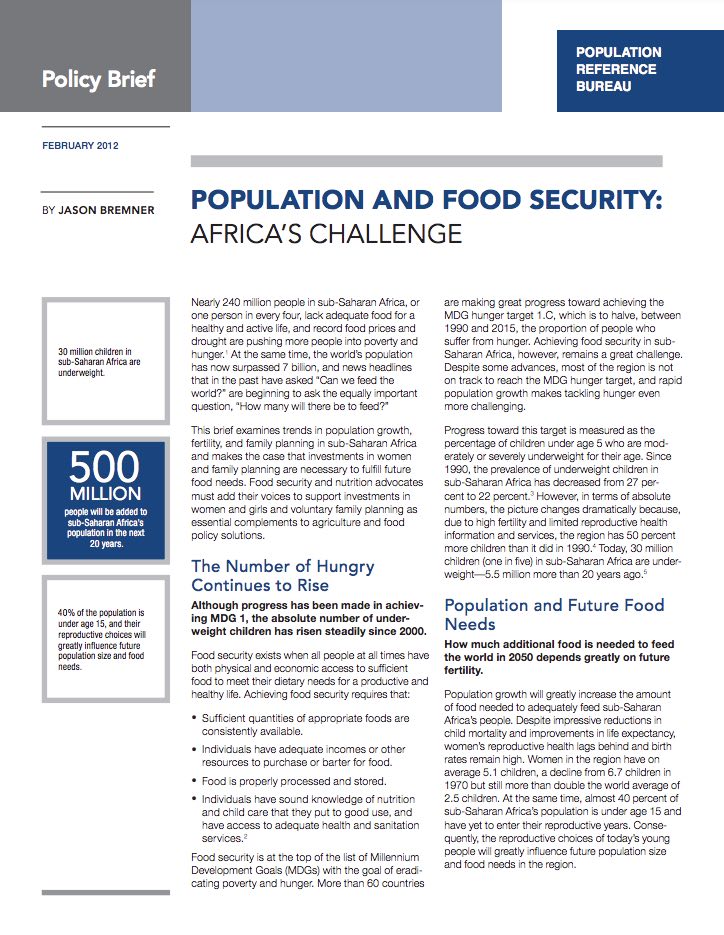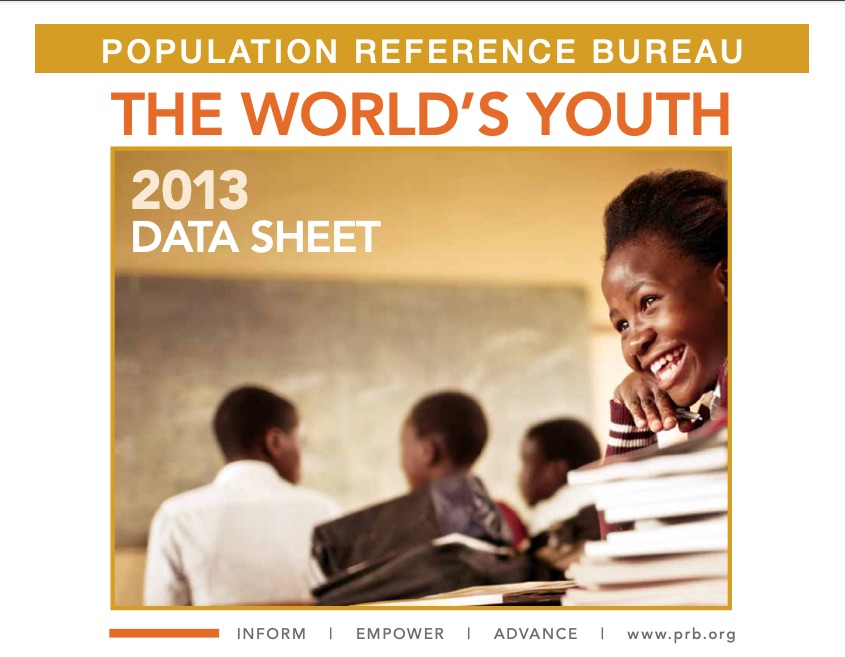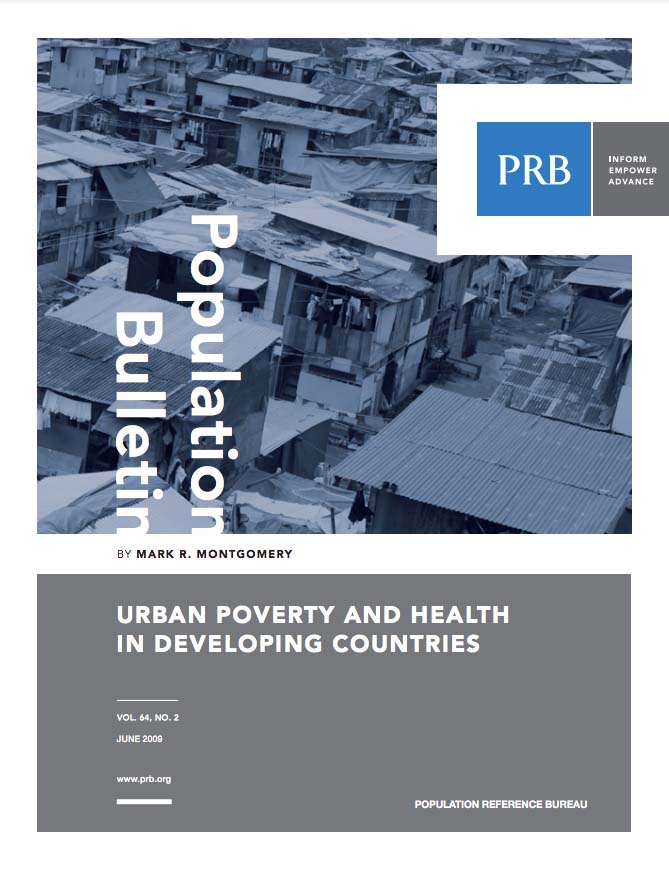Aging, Family Structure, and Health
(October 2009) Social and intimate connections change with age. These changes affect and are affected by health.
(October 2009) Social and intimate connections change with age. These changes affect and are affected by health.

(2010) Violence against women is a costly and pervasive public health problem and a violation of human rights. In Egypt, a third of women are physically abused by their husbands, according to the 2005 Egypt Demographic and Health Survey (DHS).

(2012) Almost two of every three people in sub-Saharan Africa live in a rural area, relying principally on small-scale agriculture for their livelihood. Improving agriculture on small farms is critical to reducing hunger.
In this Jason Bremner, associate vice president of International Programs at PRB, and Lori M. Hunter, professor of sociology at the University of Colorado Boulder, discussed the relationship between migration and the environment and highlighted innovative research taking place at population research centers.
(2000) Gregory Goodwin "Goody" Pincus was Dr. Pincus because of his Harvard Ph.D. in biology, not because of a medical degree. Yet his work may have been the most important medical advance of the century for improving women's health and status. If any one person merits recognition as the father of the birth control pill, it was Goody Pincus.


(2009) The era in which developing countries could be depicted mainly in terms of rural villages is now in the past. A panoramic view of today's demographic landscape reveals a myriad of cities and towns.